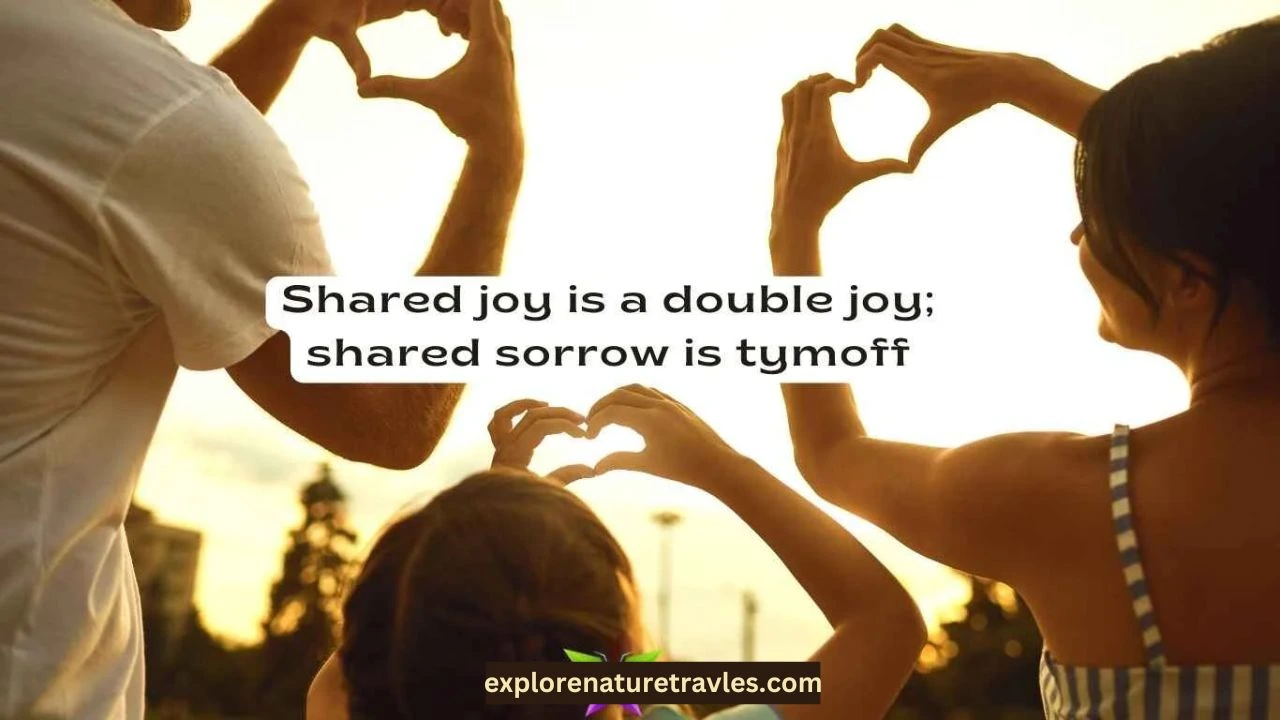Since the world is dictated by emotions in many aspects of our behavior, the use of the phrase shared joy is a double joy; shared sorrow is tymoff holds deep meaning. It speaks towards connecting with other people as well as empathizing with them. Such a simple yet profound statement reveals the biggest truth about our emotional health: joy is to be shared, and shared joy can build happiness, while shared sorrow can ease pain.
Let’s enter a little deeper into shared joy is a double joy; shared sorrow is tymoff, discover how to understand and apply this principle for healthier, more fulfilling relationships and emotional well-being.
The Nature of Joy and Sorrow
Joy and sorrow are emotions that each person faces. While joy unifies people, sorrow estranges people and makes them feel alone. Through the proverb, sharing these feelings has the potential to modify what we would call our experience. When we share in joy, it thrives and is more filled; when we share in sorrow, the burden that we are facing lightens.
Shared Joy: A Double Joy
- Celebrate Together: The festivities in events like birthday, wedding, or success are all the more special when shared with loved ones. The joy is such that it forever remains a memory.
- Sharing Joy Creates Community: Shared joy can bring people closer to one another in a community. Festivals or collective celebrations provide the scope for individuals to associate with others by the binding emotion of happiness.
- Support Systems: In friendships and family relationships, the celebrations of each other’s successes further strengthen support systems. This mutual encouragement fosters a healthy environment where each one of them prospers.
Half Sorrow
- Emotional Support: Several others may seek emotional support through these friends or members of their families; it helps in venting emotions in a safe and understandable environment.
- Building Resilience: We always find strength in vulnerability each time we share our struggles with each other. This provides an opportunity for healing as we learn from each other’s experiences.
- Community Solidarity: Although everyone cries over disasters or losses, a shared understanding dawns when people come together to grieve. This would make those afflicted less feel alone with their pain.
The Psychological Benefits of Emotion Sharing

Research evidence supports the supposition that emotional sharing may prove beneficial for positive psychological consequences. A host of psychological benefits emanate from sharing joy and sorrow, which are outlined below:
- Stress Reduction: Reliving joyful experiences can stimulate the discharge of oxytocin, as popularly known, or the “hormone of love,” along with other hormones that soothe stress, alongside having an amabolic effect to generate happiness.
- Enhanced Coping Mechanisms: Discussing sorrows helps patients enhance their coping mechanisms as subjects develop new perceptions about how they need to cope with the painful issues.
- Deeper Relationships: The open sharing of happiness and unhappiness leads to closer relationships between the parties involved and therefore makes the relationships deeper.
Practical Ways to Share Joy and Sorrow
To behave in agreement with the wisdom that Shared Joy Is A Double Joy; Shared Sorrow Is Tymoff, here are the working practices,
- Celebrate Traditions: Implement the culture in your family or friends’ circle for the frequent celebration of successes, no matter how minor those may appear.
- Practise Active Hearing: When a person is sharing his sorrow with you, listen to him by being appropriately attentive and free of judgment. This will automatically create a safe space for him to share.
- Join Community Groups: Participate in other community activities that enhance both celebration and support when needed—such as volunteer groups or support circles.
- Social Media Management: Post your successes on social media as well as experiences to share your struggles. Being open about your struggles might enable people to connect with similar experiences.
Why Is Shared Joy Important?
Shared joy is important for several compelling reasons.
- Biological Reasons: Sharing joy releases neurotransmitters such as dopamine and oxytocin, increasing the feelings of pleasure and bonding shared for overall wellness .
- Deeper Bond: Positive shared experiences deepen and strengthen relationships through mutual comprehension .
- Building a sense of community: Sharing joy creates an enjoyable atmosphere, makes people cooperative and respectful to other fellow citizens within societies.
- Facilitates Empathy: It builds better understanding of others and thereby compassion and inclusiveness.
- Psychological Well-Being: In the case of dyadic positive experiences, people report less stress and higher life satisfaction.
- Longer Lasting Happiness: Common activity tends to generate longer-lasting happiness than solitary pursuits.
- Trust Building: Shared joy builds trust in the relationship that is important for emotional gratification.
Conclusion
The presence of a proverb as the caption Shared Joy Is A Double Joy; Shared Sorrow Is Tymoff sorrow-relocates that one’s or all of their ties result in a synergy of energy, which could help expand feelings or well-being and ultimately strengthen relationships. Whether it is in celebrations or support in difficult phases, taking or sharing experiences gives life value both to the living and to other people.
This wisdom, therefore, as lived by each day builds not only ourselves but also gives us a sense of community where everyone is valued and understood. Eventually, by sharing our joys and sorrows with one another, we create a more compassionate world in which emotional experiences are honored collectively.
Read More: I have no one, but respect everyone – Tymoff



